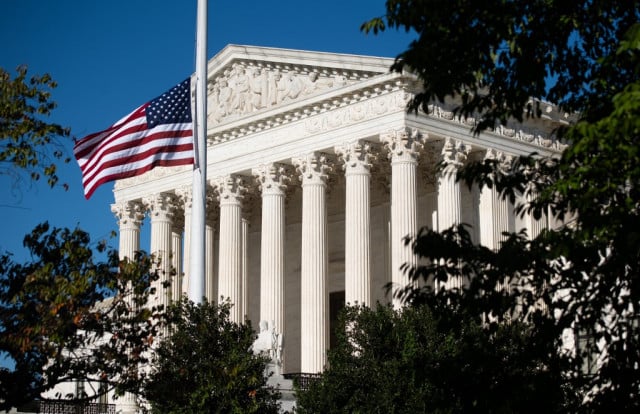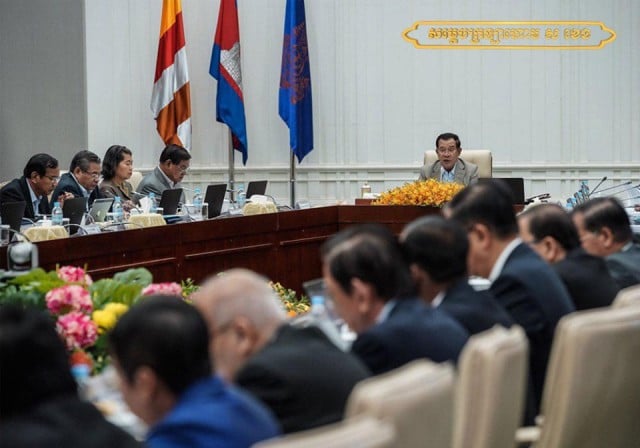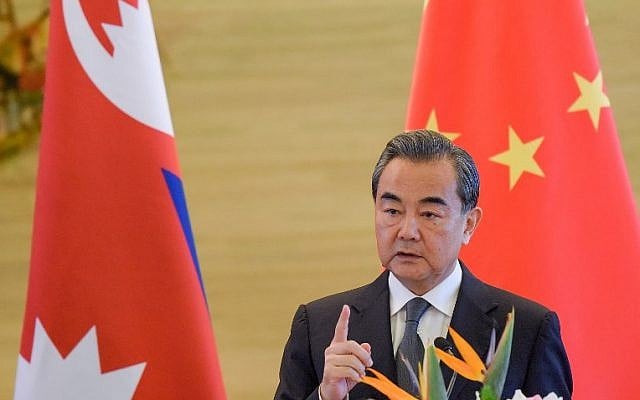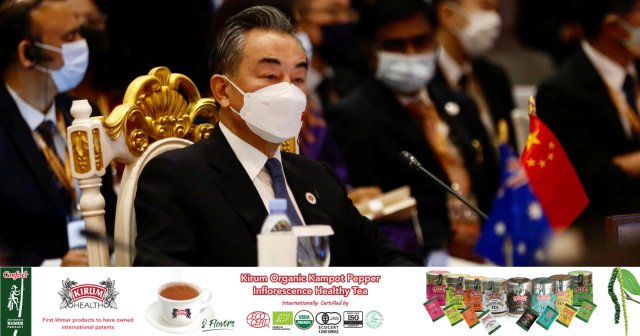Opinion: The Eroding of the United States’ Soft Power after the Cold War

- Rim Sokvy
- November 8, 2020 7:34 AM
Since the end of the Cold War, the United States has played an essential role in the international arena in promoting peace, prosperity, freedom, human rights, and democracy.
By possessing military capability and economics prowess, the US projected its power regionally and globally, and prevented any arising power from upsetting the international order. The acceptability of US values and ideas in foreign countries has shown that US power stretches beyond its military and economic capacity but also extends to soft power.
The Source of the United States’ Soft Power
Power refers to the ability to influence other people's behaviors and actions.There are mainly two types of power: hard and soft. Hard power is the ability to make others do what you want them to do by using brute force and threat. Soft power, on the other hand, is the ability to make others do what you want by making them admire and appreciate your culture, values and political paths. This can be called the second face of power that states can use to influence the behavior of others without using economic sanctions or threats of war. This kind of power has been used by the United States during and after the Cold War. Culture, political values and foreign policies have played important roles as intangible capabilities in enhancing the US soft power.
Even though the US has no root in ancient times, its culture including its music, lifestyle, language, political culture and individualism have been admired and absorbed by other countries around the world. Its political values and ideas are also highly appreciated, so are freedom, human rights, democracy and individualism. The American political value is so powerful that it was strong enough to break down the authoritarian regimes in Eastern Europe in the final years of the Cold War and in the Middle East through the early 2000s. The people in those regions started a revolution and gained a new political system that could guarantee them justice, freedom, and prosperity. The United States started spreading this information through radio stations, social media, NGOs and other projects that aim to influence the ideas of citizens in foreign countries so that they could initiate activities that support the US from abroad. The protest in Tiananmen Square in 1989, for instance: The Chinese people started to protest and demand more political freedom and more participation in decision making as Western citizens have enjoyed.
For its foreign policy, the United States has been perceived as the benevolent superpower that helps to maintain a peaceful international order, accelerate free trade, human rights, and prevent the proliferation of nuclear weapons. That foreign policy can be seen through its invasion in Iraq and economic sanctions on Iran and North Korea over their aggressive actions and violation of international norms by their developing and testing weapons of mass destruction. More importantly, even though the United States’ military and economic power are hard power, they also help enhance its soft power as this can get others to admire the strength and tactics of its military and economic development. The United States has funded intergovernmental organizations such as the United Nations (UN), NATO, the World Bank, and other countries economically and militarily—this is estimated at around $40 billion dollar annually.
The Erosion of the United States’ Soft Power
The American soft power has been fading away with the fluctuation of its foreign policies and the emerging of regional powers, ultimately affecting its legitimacy in maintaining the international system. The Bush Military Storm Operation in Iraq without the second resolution from the UN Security Council has strongly affected its image, this being viewed as unilateralism, and also the legitimacy of the UN as the neutral intergovernmental organization maintaining peace and prosperity. As President Bush’s foreign policy focused on preemptive strike and used military operations to strike at terrorists and topple any government that harbored and aided terrorist groups, it showed the inabilities of the US in solving the world issues through peaceful negotiation.
When Barack Obama was elected president, the US soft power was restored through the proposed establishment of the Trans-Pacific Partnership that aimed to increase trading among the Indo-Pacific countries. Beside this, he was more proactive in solving international issues such as through the creation of the Joint Comprehensive Plan of Action with five permanent members of the UN Security Council and the European Union to deal with the Iranian nuclear issue. Human rights and democracy dominated his political agenda and the US troops were sent to Syria to fight against terrorists and protect the civilians.
However, when Donald Trump won the presidential election in 2016, the US foreign policy moved to another level. Trump intensified his foreign policy by waging trade war with China that led many to be concerned about the United States’ intention in retreating to protectionist policies. Trump’s administration preferred unilateralism to multilateralism as he had withdrawn from any agreement that he viewed as unfavorable to the US such as the Trans-Pacific Partnership, the Iran Nuclear Deal and many more.
Not only that, he also demanded that countries pay money in exchange for US military presence in their countries as he viewed those countries as free riders. His foreign policies could be summed up in the phrase “Make America Great Again” as he had used this as rhetoric in order to lure support during the election. The US under the Trump administration has come up with some policy options to solve problems with Iran and North Korea over nuclear weapons, with Russia over civil war in Syria, and with China over intellectual property and trade issues. But those options have proven ineffective and provocative.
Legitimacy and Influence through Soft Power
The losing of soft power is very critical for US power and its legitimacy in dealing with the regional and international issues. In the past, the US role in maintaining peace and stability was acceptable for country leaders in Europe and citizens in most countries, the US being perceived as the father of democracy, the advocator of free trade and a benevolent superpower as it helped create the United Nation, the World Bank and the international monetary system, all of which based on transparency, equality and efficiency in solving international issues.
More importantly, the US favored poor and underdeveloped countries in terms of trade agreements with more developed countries through the World Trade Organization schemes such as preferential trade agreements in exchange for human rights and democracy in developing countries. On the contrary, the current US foreign policy has been viewed as unilateralism, protectionist and less focused on human rights and democracy.
The US invasion of Iraq in 2003, and the withdrawal of its troops from Syria are testimony that the Unites States would not interfere in a region that doesn’t involve its interest. With the decline of American soft power, its actions are questionable not only when it tries to solve international issues but also when it interferes in the domestic affairs of other countries.
Rim Sokvy is a fresh graduate from the Department of International Studies with a major in International Relations. He is also a former intern at Konrad Adenauer Stiftung Cambodia, and used to volunteer as an English and environmental teacher at Global Peace Alliance Cambodia.















